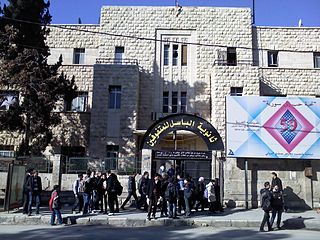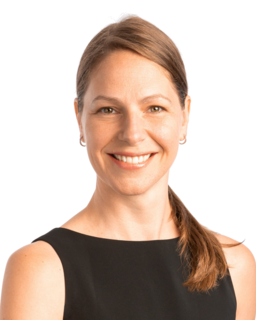Related Research Articles
The following outline is provided as an overview of and topical guide to education:

Education in Canada is for the most part provided publicly, and is funded and overseen by provincial, territorial and local governments. Education is within provincial jurisdiction and the curriculum is overseen by the province. Education in Canada is generally divided into primary education, followed by secondary education and post-secondary. Within the provinces under the ministry of education, there are district school boards administering the educational programs.
Education in Northern Ireland differs from education systems elsewhere in the United Kingdom, although it is relatively similar to Wales, and the Republic of Ireland in sharing in the development of the national school system and serving a similar society with a relatively rural population. A child's age on 1 July determines the point of entry into the relevant stage of education in the region, compared to 1 September in England and Wales. Northern Ireland's results at GCSE and A-Level are consistently higher than those in England and Wales; Scotland uses a different examination system.
Education in Japan is managed by the Ministry of Education, Culture, Sports, Science and Technology (MEXT) of Japan. Education is compulsory at the elementary and lower secondary levels. Most students attend public schools through the lower secondary level, but private education is popular at the upper secondary and university levels. Education prior to elementary school is provided at kindergartens and day-care centres. The programmes for those children aged 3–5 resemble those at kindergartens. The educational approach at kindergartens varies greatly from unstructured environments that emphasize play to highly structured environments that are focused on having the child pass the entrance exam at a private elementary school. The academic year starts from April and ends in March, having summer vacation in August and winter vacation in the end of December to the beginning of January.

Education in Bangladesh is overseen by the country's Ministry of Education. The Ministry of Primary and Mass Education is responsible for implementing policy for primary education and state-funded schools at a local level. In Bangladesh, all citizens must undertake ten years of compulsory education which consists of five years at primary school level and five years at high school level. Primary and secondary education is financed by the state and free of charge in public schools.
The Ministry of Colleges and Universities is the ministry of the government of Ontario responsible for administration of laws relating to post-secondary education. This ministry is one of two education ministries, the other being the Ministry of Education. The Ministry's offices are in downtown Toronto, Ontario. The current minister is Jill Dunlop.

Education in the Syrian Arab Republic is given the necessary attention and care by the Syrian state, as the Syrian Constitution guarantees the right to education to every citizen, which is compulsory and free at primary level. It is free but not compulsory at the secondary level and higher education is available for a symbolic fee. the primary level includes 2 stages, 1 & 2 which include grades 1 to 6 while the secondary school includes grades7 till 10

Education in Mauritius is managed by the Ministry of Education & Human Resources, which controls the development and administration of state schools funded by government, but also has an advisory and supervisory role in respect of private schools. The Tertiary education is maintained by the Ministry of Tertiary Education, Science, Research and Technology. The government of Mauritius provides free education to its citizens from pre-primary to tertiary levels. Since July 2005, the government also introduced free transport for all students. Schooling is compulsory up to the age of 16. Mauritian students consistently rank top in the world each year for the Cambridge International O Level, International A and AS level examinations. Among sub-Saharan African countries, Mauritius has one of the highest literacy rates. According to The World Factbook - Central Intelligence Agency as of 2018, 91.3% of the population age 15 and over can read and write in Mauritius were respectively literate.

Education in Guyana is provided largely by the government of Guyana, through the Ministry of Education and its arms in the ten different regions of the country. Guyana's education system is a legacy from its time as British Guiana, and is similar to that of the other anglophone member states of the Caribbean Community, which are affiliated to the Caribbean Examinations Council (CXC). School curricula, funding, standards and other policies are set by the central government and implemented through the Ministry of Education and related agencies. The Education System is divided into eleven districts, ten of which correspond to the national administrative and geographical regions of the country, while the capital, Georgetown, is treated as a separate education district. With 8.3% of its GDP spent on education, Guyana sits with Cuba, Iceland, Denmark and Botswana as among the few countries with top spending on education.

Higher education in Canada includes provincial, territorial, indigenous and military higher education systems.

Higher education in Prince Edward Island refers to education provided by higher education institutions in the Canadian province of Prince Edward Island. In Canada, education is the responsibility of the provinces and there is no Canadian federal ministry governing education. Prince Edward Island has one university, the University of Prince Edward Island authorized to grant degrees, and two community colleges, Holland College, which operates centres across the province, and Collège de l'Île, which offers post secondary education in French. The governing body for higher education in Prince Edward Island is the Department of Innovation and Advanced Learning, headed by the Minister of Innovation and Advanced Learning, the Honourable Allen Roach.

Higher education in New Brunswick refers to education provided by higher education institutions in the Canadian province of New Brunswick. Higher education has a rich history in New Brunswick. The first English-language university in Canada was the University of New Brunswick. Mount Allison University was the first in the British Empire to award a baccalaureate to a woman, Grace Annie Lockhart, B.Sc. in 1875. Education is the responsibility of the provinces in Canada and there is no federal ministry governing it.

Higher education in Nova Scotia refers to education provided by higher education institutions. In Canada, education is the responsibility of the provinces and there is no Canadian federal ministry governing education. Nova Scotia has a population of less than one million people, but is home to ten public universities and the Nova Scotia Community College, which offers programs at 13 locations.

Education in the Bahamas is compulsory between the ages of 5 and 16. As of 2003, the school attendance rate was 92% and the literacy rate was 95.5%. The government fully operates 158 of the 210 primary and secondary schools in The Bahamas. The other 55 schools are privately operated. Enrollment for state primary and secondary schools is 50,332, with more than 16,000 students attending private schools. Some public schools lack basic educational materials and are overcrowded. The Bahamas Union of Teachers (BUT) were the ones who acted to create some reform for their weakening education systems. The island has an Education Act that was revised in 1996 and is under control of the Prime Minister. As of 1996, the Education Act states that education is free for children between the ages of 5 and 16. The University of the Bahamas, established in Nassau in 1974, provides programs leading to bachelors and associate degrees. Several non-Bahamian colleges also offer higher education programs in The Bahamas. Generally, the academic year in The Bahamas goes from late August or early September to late May or early June for primary and secondary schools and late April/early May for college.
Education in Eswatini includes pre-school, primary, secondary and high schools, for general education and training (GET), and universities and colleges at tertiary level.

Southville International School and Colleges (SISC) is a private, non-sectarian school.
Manitoba Advanced Education, Skills and Immigration is the department of the Government of Manitoba responsible for supporting adult learning, post-secondary education, and vocational training in Manitoba.
The Holy Trinity College of General Santos City is a school in General Santos City. It is a non-sectarian school duly registered in the Securities and Exchange Commission, through its Davao City office. Holy Trinity College of General Santos City was established by the Albano Family, as a Pre-school in 1984 and registered as a College in 1989.

Educational management refers to the administration of the education system in which a group combines human and material resources to supervise, plan, strategise, and implement structures to execute an education system. Education is the equipping of knowledge, skills, values, beliefs, habits, and attitudes with learning experiences. The education system is an ecosystem of professionals in educational institutions, such as government ministries, unions, statutory boards, agencies, and schools. The education system consists of political heads, principals, teaching staff, non-teaching staff, administrative personnel and other educational professionals working together to enrich and enhance. At all levels of the educational ecosystem, management is required; management involves the planning, organising, implementation, review, evaluation, and integration of an institution.

Rebecca (Becky) Druhan is a Canadian politician, who was elected to the Nova Scotia House of Assembly in the 2021 Nova Scotia general election. She represents the riding of Lunenburg West as a member of the Progressive Conservative Association of Nova Scotia.
References
- ↑ "Cabinet". 23 June 2017.
- ↑ "Department of Education and Early Childhood Development". 27 February 2020.